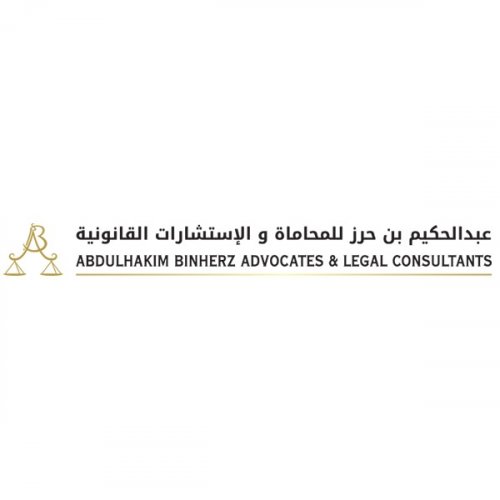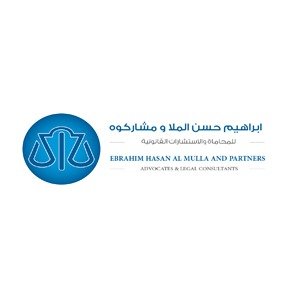Best Conveyancing Lawyers in Ras al-Khaimah
Share your needs with us, get contacted by law firms.
Free. Takes 2 min.
Free Guide to Hiring a Real Estate Lawyer
List of the best lawyers in Ras al-Khaimah, United Arab Emirates
About Conveyancing Law in Ras al-Khaimah, United Arab Emirates
Conveyancing in Ras al-Khaimah refers to the legal process of transferring property ownership from one person or entity to another. This includes both residential and commercial real estate and encompasses the preparation, review, and registration of legal documents such as sale agreements and title deeds. The laws and procedures are designed to ensure that property transactions are secure, transparent, and fully compliant with the regulations established by the Ras al-Khaimah government as well as federal UAE law. The property market in Ras al-Khaimah is regulated to protect the rights of both buyers and sellers and to facilitate smooth and reliable transactions.
Why You May Need a Lawyer
There are several situations in which you may require legal assistance with conveyancing in Ras al-Khaimah:
- If you are buying or selling property and need to ensure all legal requirements are met
- If you are a non-UAE national and need to clarify your property rights and eligibility
- If there are disputes relating to property boundaries, title, or ownership
- If you wish to verify the authenticity and legality of a property title or sale agreement
- If you encounter issues with registration or wish to transfer a mortgage alongside a property transaction
- If you are involved in complex property dealings, such as commercial real estate or off-plan purchases
- If you need to understand inheritance laws as they pertain to property transfer
- If you want to avoid potential fraud or misrepresentation during transactions
Local Laws Overview
Property transactions in Ras al-Khaimah are governed by both local legislation and federal UAE laws. Key aspects include:
- All real estate transactions must be registered with the Ras al-Khaimah Land Department.
- Specific areas may have restrictions on ownership by non-UAE nationals. Some developments are designated as freehold where foreign ownership is permitted, while others remain restricted.
- Property transactions require clearance of all government dues, including service charges and registration fees, before they can be completed.
- Contracts and sale agreements must be in accordance with UAE property law and may need to be witnessed by a legal professional or public notary.
- Disputes are generally resolved either through the property court or via approved dispute resolution mechanisms.
- Landlords and tenants are subject to specific rules regarding property rentals, and separate regulations apply for leases.
- All conveyancing processes must adhere to rules designed to prevent fraud, money laundering, and other unlawful activities.
Frequently Asked Questions
What is conveyancing and why is it important in Ras al-Khaimah?
Conveyancing is the legal process of transferring property ownership. It protects the interests of both buyers and sellers by ensuring all legal formalities are followed, preventing disputes and fraud.
Can non-UAE nationals buy property in Ras al-Khaimah?
Yes, but only in designated freehold areas. It is important to confirm eligibility and property location before starting a transaction.
What documents are needed for property transfer?
Commonly required documents include original title deeds, sale and purchase agreement, valid passports or Emirates ID, and proof of payment of relevant fees.
How is property registered in Ras al-Khaimah?
The property must be registered at the Ras al-Khaimah Land Department. The department will verify the transaction, ensure all fees have been paid, and update the title deed.
How are property disputes resolved?
Disputes can be resolved through the property court or alternative dispute resolution mechanisms. Legal advice is recommended for complex cases.
Do I need a lawyer for conveyancing transactions?
While not mandatory, hiring a lawyer helps to ensure that you comply with all legal requirements and protects you from potential risks or disputes.
What are the main risks in a property transaction?
Risks may include hidden debts on the property, forged documents, misrepresentation, incomplete developments, or failure to clear government dues.
How long does the conveyancing process take?
A typical transaction can take between a few days to a few weeks, depending on the complexity, documentation, and clearance of all necessary approvals and payments.
What fees are associated with conveyancing?
Fees include registration charges, government taxes, agency fees, and sometimes legal fees. These should be clearly stated in the sale agreement.
Can I purchase off-plan property in Ras al-Khaimah?
Yes, off-plan property purchases are allowed but they involve additional legal requirements and checks. Make sure to verify developer credentials and project approval status.
Additional Resources
If you need more information on conveyancing in Ras al-Khaimah, you can contact the following:
- Ras al-Khaimah Land Department - for property registration and regulation enquiries
- Ras al-Khaimah Municipality - for property-related guidelines and approvals
- UAE Ministry of Justice - for legal rulings and dispute resolution mechanisms
- Qualified legal practitioners or law firms specializing in real estate and conveyancing law
- Local real estate regulatory authorities and property developers for development-specific queries
Next Steps
If you are considering buying, selling, or transferring property in Ras al-Khaimah, it is wise to consult with a licensed lawyer who specializes in conveyancing. Gather all relevant property documents, confirm your eligibility to buy or sell, and arrange a consultation to discuss your specific needs. Always verify the credentials of agents and legal advisors, and ensure all agreements are reviewed before you sign. Making informed decisions and seeking professional legal advice early will help you avoid unnecessary complications or disputes during your conveyancing process.
Lawzana helps you find the best lawyers and law firms in Ras al-Khaimah through a curated and pre-screened list of qualified legal professionals. Our platform offers rankings and detailed profiles of attorneys and law firms, allowing you to compare based on practice areas, including Conveyancing, experience, and client feedback.
Each profile includes a description of the firm's areas of practice, client reviews, team members and partners, year of establishment, spoken languages, office locations, contact information, social media presence, and any published articles or resources. Most firms on our platform speak English and are experienced in both local and international legal matters.
Get a quote from top-rated law firms in Ras al-Khaimah, United Arab Emirates — quickly, securely, and without unnecessary hassle.
Disclaimer:
The information provided on this page is for general informational purposes only and does not constitute legal advice. While we strive to ensure the accuracy and relevance of the content, legal information may change over time, and interpretations of the law can vary. You should always consult with a qualified legal professional for advice specific to your situation.
We disclaim all liability for actions taken or not taken based on the content of this page. If you believe any information is incorrect or outdated, please contact us, and we will review and update it where appropriate.











